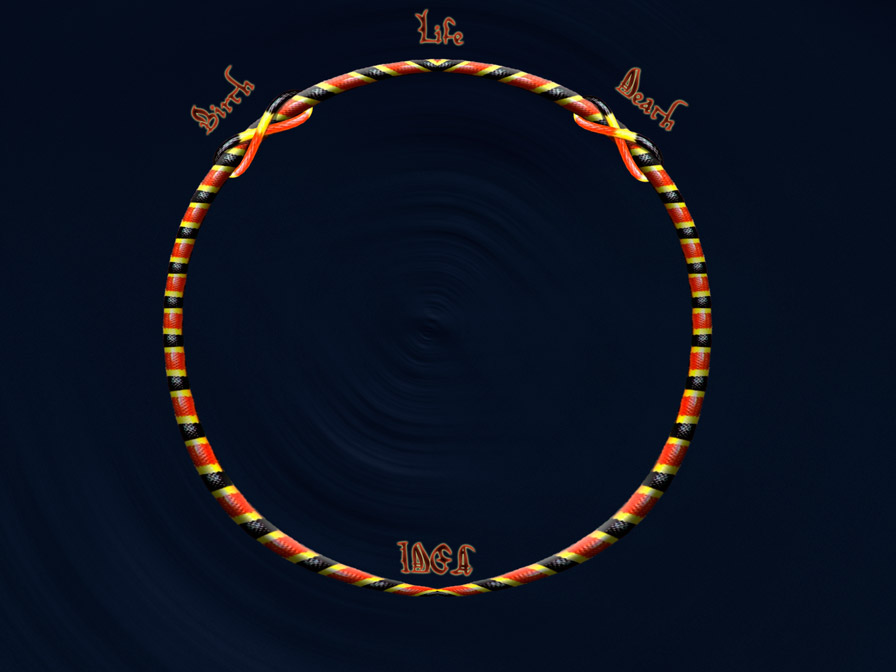In the civilised society of Porrheim work, governance and everyday life was as in most other civilised societies. It worked! The huge wheel of labour that the humans had put into the system that held the people together was spinning. Each day and each month the wheel was tended to, assigned people made sure that it was well oiled and that no obstacles were in its way. Is is usual, of course, that this is not always as easy as the theory suggests. For there where, again of course, obstacles to take care of. One and another who wanted to abuse the loop holes of the societal fabric and two or the same, anarchists who felt the need to express their dissaticefaction with the system. But these were small problems that were easily handled with and rarely posed a real problem, or a real threat to the fate of the spinning wheel.
And so, it seemed to the civilians that they lived freely, as it were, together in a society that worked for each and everyone. This was also a virtue of their civilisation, at least in the minds of the inhabitants. For it was not acceptable to discriminate or to intentionally hurt others. Neither was it allowed to abuse others and most importantly, not to abuse the system. They had arranged for this of course, each and every day tending to the problems that arose. Laws were protecting the rightious and good citisens and the laws worked well. So well, in fact, that new laws were created all the time and the population welcomed it, as the laws really did kept the wheel spinning.
Roman Welsh was brought up in Porrheim. His parents never took him elsewhere and there was really little need for such travels as everything a man could desire really was available in Porrheim. His upbringing held good standards, Porrheim standards mind you, and in his adult life we was successful and was able to make a family all on his own together with his wife. They produced two healthy young children and loved them and cared for them as much as any other parents would.
The truly sad story of Roman Welsh begins in his thirties. He was invited out on a hiking trip by some new friends he and his wife made during their pregnancy. It was a hiking trip destined to the mountains, the Yawning Cleft more precisely. For Roman this was exciting, he did not know why but he figured that because he had never really experienced anything outside Porrheim, save for exotic trinkets, food and literature imported into Porrheim, this was to be something of an adventure.
The group of friends set off by transportation on wheels at first, just to arrive in safety and to keep up to good anticipation of mountain hiking. As soon as they arrived at the feet of the Yawning Cleft they started trecking and their spirit was high. It was all new for Roman and he enjoyed it to the fullest, even the exotic leafes on the trees made his senses explode with admiration, and needless to say; there were many leaves in the Yawning Cleft.
Eventually the group arrived at something that was new to them all, not the object they say itself but the look of it. They had arrived at a well and the look of it was ancient. There were no other word to describe it. It had a inherent mystical feel to it and not long after they saw it they started to make up stories of what this well was used for when it a long time ago was used regularly. It was proposed by Roman’s travelling companion that Roman should go down into the well to see what was down there. After all this was an adventure. Roman saw nothing wrong with this and admittedly he was excited, almost aroused. But as it was is companions idea he could see no reason as to why he himself should take responsibility for what would happen down in the well so he immediately produced a note paper and a pen and started to write proficiently:
“I Shandor Ifelt, take full responsibility for all consequences and reactions that are produced in the event that Roman Welsh will descend down the Ancient Well located in the south east in the the Yawning Cleft.
Shandor Ifelt signs here after to agree with the terms of this agreement:________________”
Shandor, the travelling companion, saw no flaws with this contract. It was as regular as ever when you came from Porrheim. He signed it quickly and they shook hands. There after he fastened a rope in the roof of the ancient well for Roman to cling onto during his descent.
Roman stepped up on the rim of the well and looked down. It was completely black and the only sound coming from down there could only be described as silence. It smelled ancient, however that smells.
He took a steady grip around the rope and slowly transferred his feet from the rim to the rope. He held fast and started slowly to descend. He was better at it than he thought. However, after only a few meters down the well upon when he shouted up that he had not yet reached the bottom, his grip around the rope loosend and he fell. Shandor did not hear a sound from a landing, such as s thump, but when he shouted down to Roman, Roman never replied. Shandor was too scared to go down after him and instead he headed back with tears and emotional ache, to Porrheim to find help. For he was sure who was to be held responsible for this and when such responsibility is aquired, he thought, it is required that appropriate measures are taken.

